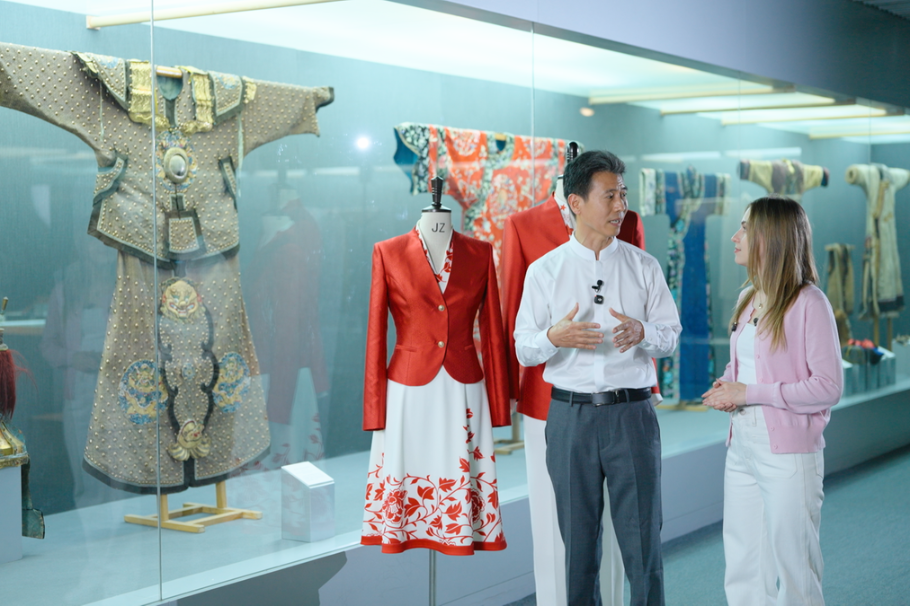US can't win tech race by slandering China

The United States administration has woken up to the fact that China has leaped across many squares on the technology game board, advancing much faster during the past decade than most thought possible. Like an advanced virtual version of Snakes and Ladders, China has managed to speed up and overtake almost all other players using its late-mover advantage. The impressive strides it has made in artificial intelligence technology, advanced multifunctional drones and 5G technology are more than enough to prove the point.
This progress continues to be helped by the fact that China produces more fuel to power its technology engine than any other country: the annual number of Chinese STEM (science, technology, engineering, mathematics) graduates is at least 10 times that of the US.
Realizing that this is happening is one thing, but reacting to it is quite another. At the beginning of his term, former US president John F. Kennedy saw the challenges the US was facing from the Soviet Union, not only in global influence and prestige in some parts of the world, but also in advances in technology. His reaction to this was to challenge his own countrymen. In a speech to US Congress in May 1961, Kennedy surprised many by expressing his desire to spend up to $40 billion to make sure the US succeeded in putting the first man on the moon. He saw this not only as a way to boost the US' international image and influence, but also realized that this would result in numerous technological and economic benefits. He was not wrong.
Washington playing the wrong game
Today, the American mindset, and therefore, its response is very different from 1961. Instead of having the self-confidence to challenge China in the technology race, and encourage US scientists, mathematicians and engineers to work harder, innovate and compete (which would ultimately benefit the whole world, as this would inevitably generate many useful by-products and new technological advances), the US response is to try to stifle China, and win the race by debilitating the competitor instead of producing a superior product.
This rather disappointing response to the technology challenge manifests itself in many ways, from making it more difficult for Chinese students to study in the US, to hamstringing one of China's leading technology companies, Huawei, and suppressing its business by coercing foreign governments not to use Huawei technology.
George Soros, the controversial American investor, recently wrote an article, "The threat to Europe" published in several global newspapers, warning Europe on the dangers of using Huawei technology. This followed his January speech at the World Economic Forum in Davos on the same subject.
Falling back in tech race
One of the interesting things about his pronouncements is that it illustrates how much the US political spectrum is aligned on this subject. His thinking can be seen as one of the few common denominators between the political parties in Washington today. This commonality stems from the realization that the US is in danger of being overtaken in the technology game, with all the economic and geopolitical consequences that ensue.
The fears that Soros, and others, have regarding Huawei mainly derive from the fact that the Chinese telecommunications equipment company founder, Ren Zhengfei, received his technical training while serving as a member of the People's Liberation Army Engineering Corps. This is not that unusual in many parts of the world. Israel is a good example of this, where many of the up and coming tech companies were launched by Israeli engineers and technicians while they were fulfilling their mandatory military service.
In fact, many have described the Israeli Defence Forces as the world's greatest start-up incubator. The knowledge acquired during their almost three years of military service and the trust built up among soldier colleagues who continue to work together in civilian life are fundamental to Israel's success in building successful tech companies.
European countries defy US on Huawei
Soros and others who share his mindset also insultingly underestimate the potential and expertise of European scientists. Yet France, Germany and the United Kingdom have all recently indicated a willingness to incorporate Huawei technology into their national telecom infrastructure. They have done this despite the enormous economic and political pressure the US administration had exerted on them. Which means the best scientists and telecom experts in those countries have carefully studied, tested and evaluated Huawei equipment, and concluded that it poses no national security risk.
The claim that Huawei will use their systems for espionage, and that European countries are opening "the door to blackmail and sabotage", as Soros puts it, has never been proven. Melodramatic claims are easy to make, but they should be discarded if not substantiated.
If the best technology that is available globally happens to be Chinese, and one cannot find any of the so-called risks in applying it, then Europe should use it. As for the US, it can win over European customers only by providing better, faster or cheaper alternatives. Competition should be fair and equitable based only on the merits of the product offered and not on unproven alarmist claims of hidden danger.
The author is a specialist in International Public Law, an adviser on China-related matters to both private and public sector companies. The views don't necessarily represent those of China Daily.

Today's Top News
- China expresses worry over Japan's military and security moves
- Shenzhou XX mission crew returns after debris delays landing
- China warns Japan of 'heavy price' for any military interference in Taiwan
- Japan will only suffer a crushing defeat should it dare to take a risk: Defense spokesperson
- Tokyo must stop playing with fire: Editorial flash
- China's Shenzhou XX crew en route back to Earth






























